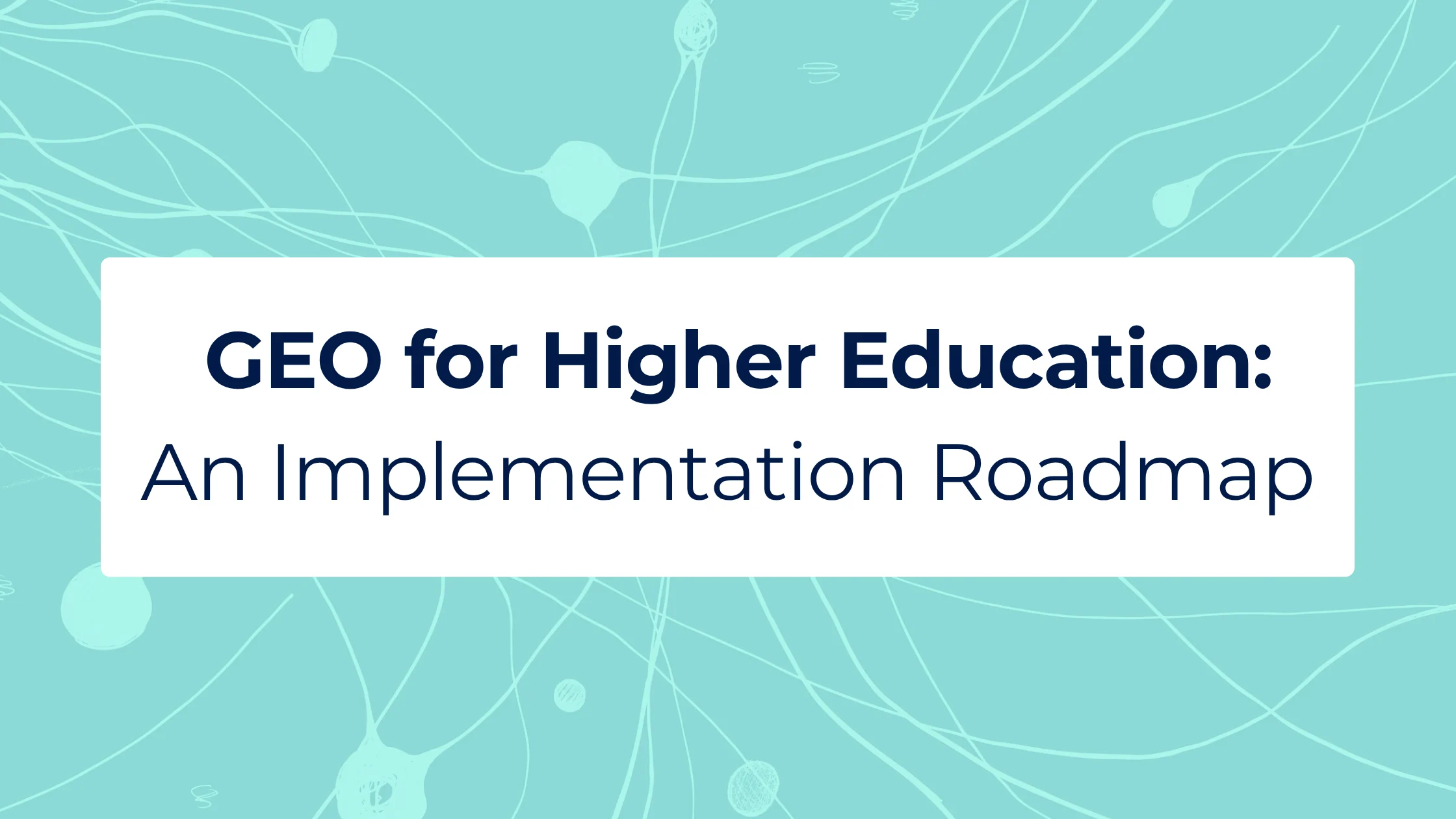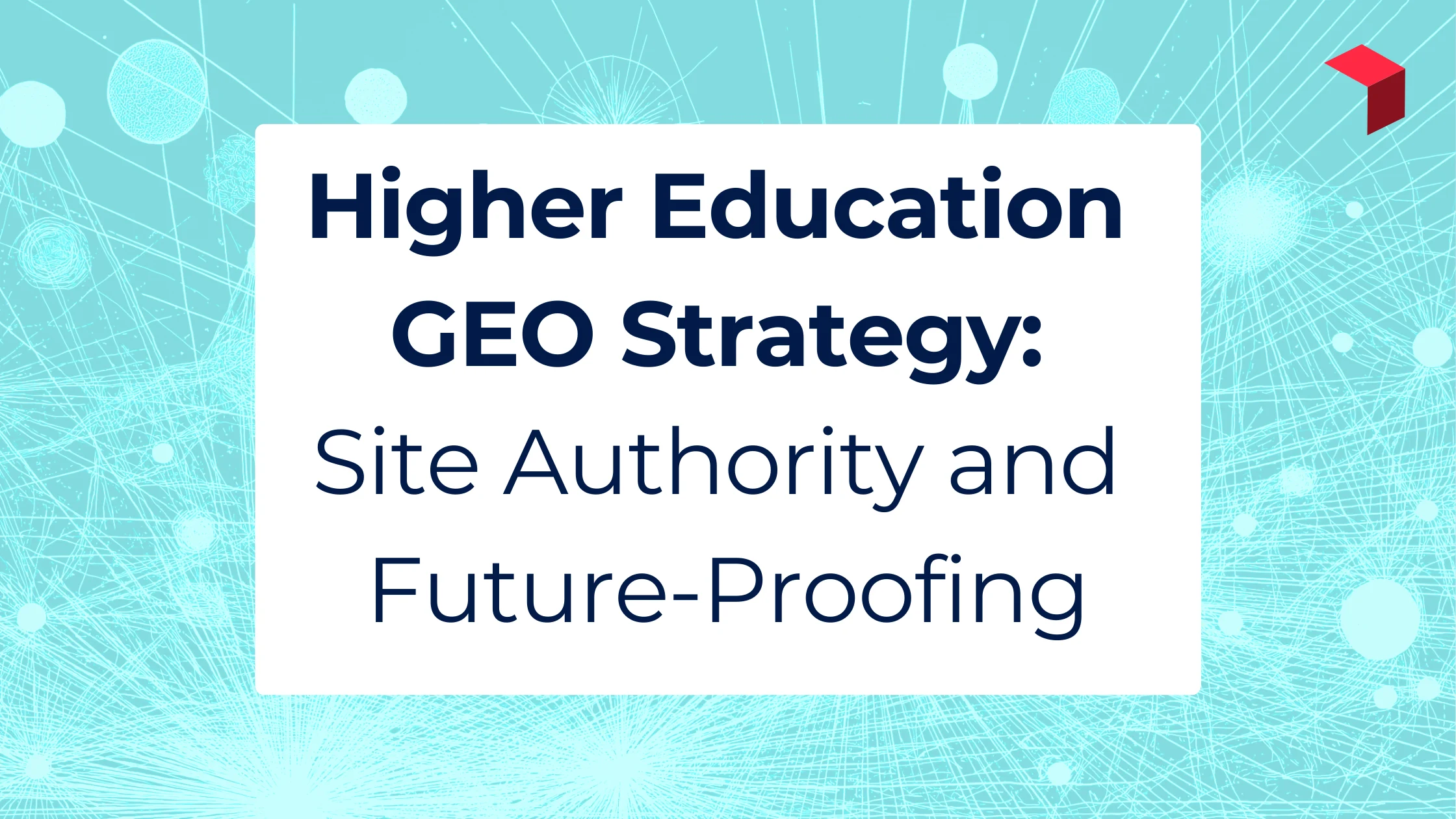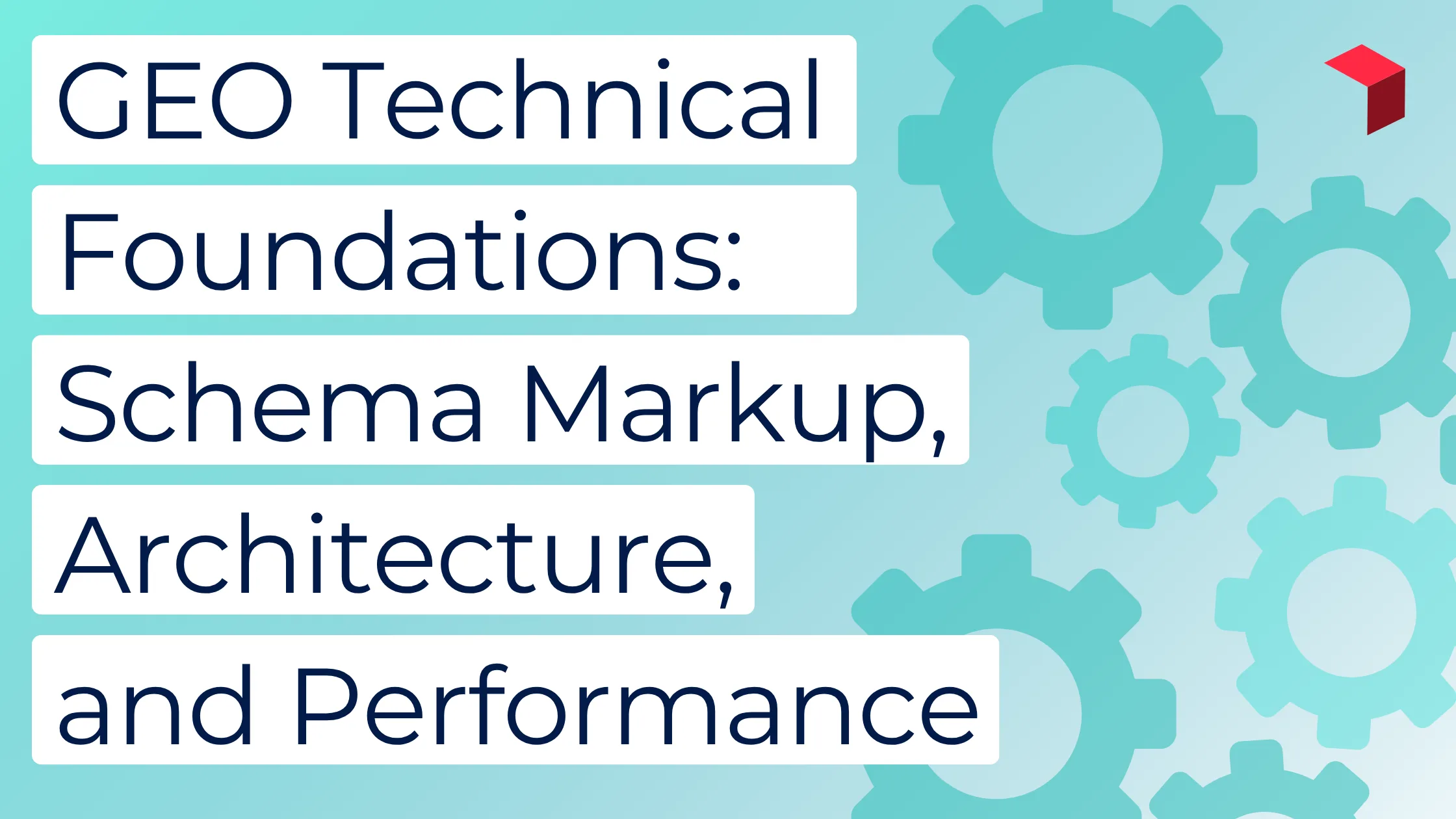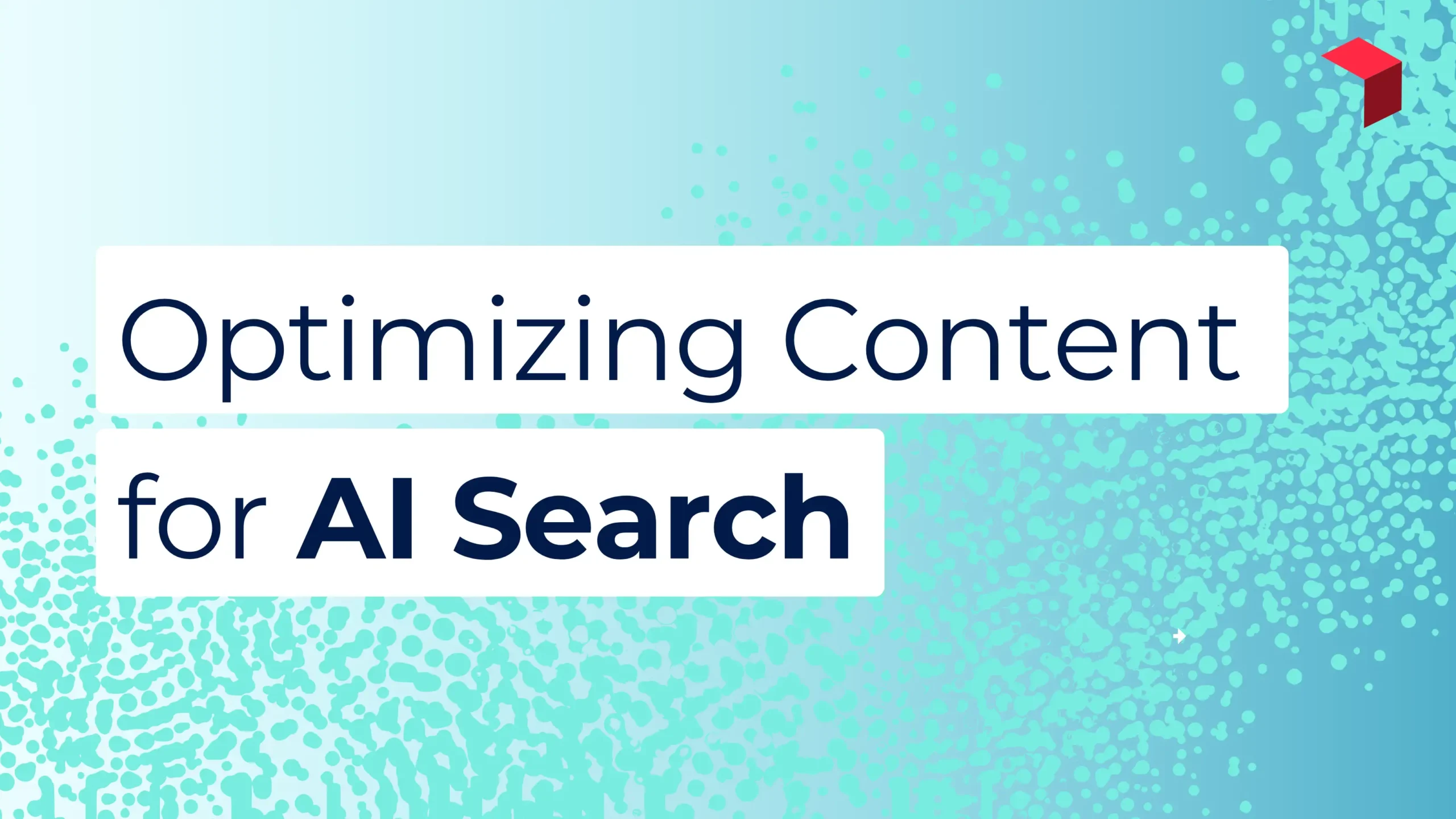This is Part 1 of our 5-part series on Generative Engine Optimization (GEO) for Higher Education. Over the next five weeks, we’ll explore how colleges and universities can thrive in the age of AI-driven search.
The digital landscape that higher education has relied on for student recruitment is undergoing its most dramatic transformation in over two decades. While your admissions team perfects social media campaigns and your marketing department optimizes for Google rankings, a quiet revolution is reshaping how prospective students discover, research, and choose their educational paths.
The shift is already here: Nearly 70% of Modern Learners use AI tools for generative chatbot platforms like ChatGPT, while 37% use these tools specifically to gather information about colleges and universities in their consideration set. This isn’t a future trend—it’s the new reality of student search behavior.
The Death of "Just Google It"
For years, higher education marketing followed a predictable playbook: optimize for Google, create compelling content, and wait for prospective students to find their way to your website through traditional search results. Students would type “best nursing programs near me,” click through multiple university websites, and gradually build their consideration sets.
That world is rapidly disappearing.
Today’s students are asking ChatGPT: “What nursing program would be best for someone who wants to work in pediatrics and prefers hands-on learning?” They’re getting comprehensive, conversational answers that synthesize information from multiple sources—answers that may or may not include your institution.
The Stakes Have Never Been Higher
The numbers paint a stark picture of what’s at risk. The top organic result on Google garners an average click-through rate of 27.6%, while less than 1% of users click through to the second page. But here’s the alarming reality: 51% of universities lack an established SEO plan, putting them at a significant disadvantage even in traditional search.
As AI search becomes mainstream, institutions without a comprehensive digital strategy face an existential visibility crisis.
Consider this trend: across nearly all industries, February showed a dip or mild decline, but March exploded, with most sectors more than doubling their AI Overview-triggering keywords compared to February. The acceleration toward AI-driven search is exponential, and higher education institutions must act now or risk becoming invisible to an entire generation of prospective students.
The Rise of AI-Driven "Zero-Click" Search
The fundamental challenge facing higher education marketing is the emergence of AI-driven “zero-click” search, where users get answers via an AI overview box on the search results page without visiting a website.
The scale of this shift is staggering. Bain’s recent research finds that about 80% of consumers now rely on “zero-click” results in at least 40% of their searches, reducing organic web traffic by an estimated 15% to 25%. Even more concerning for higher education institutions: about 60% of searches now end without the user progressing to another destination site.
This represents a seismic shift in how students interact with information:
Traditional Search Journey:
- Student searches “MBA programs for working professionals”
- Reviews multiple university websites from search results
- Compares programs across different institutions
- Eventually requests information or applies to desired institutions.
AI-Driven Search Journey:
- Student asks “What MBA program would work best for a marketing manager who can only attend classes on weekends?”
- Receives a comprehensive, conversational answer citing 2-3 programs
- May or may not visit the recommended institutions’ websites
- Makes decisions based on AI-synthesized information and other sources as well, on and off the website. May request information or apply to the desired institutions.
About 80% of search users rely on AI summaries at least 40% of the time
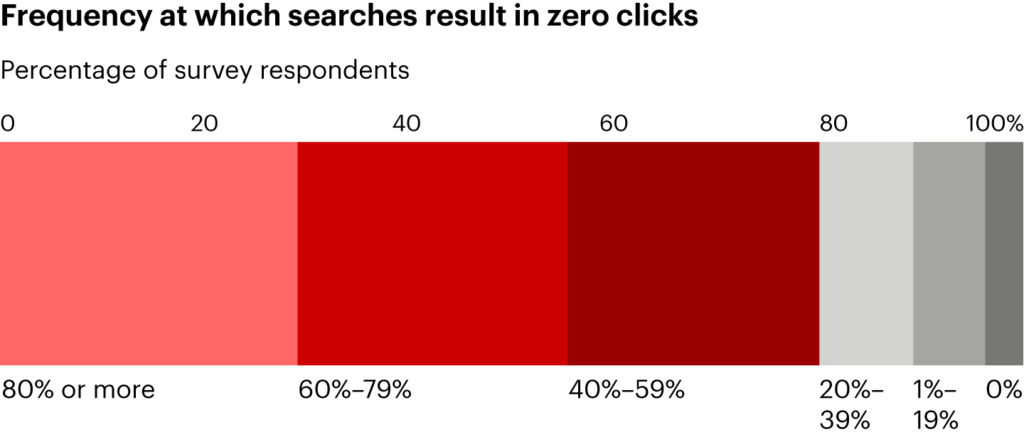
Source: Bain–Dynata Generative AI Consumer Survey, December 2024 (n=1,117)
Introducing Generative Engine Optimization (GEO)
Enter Generative Engine Optimization (GEO), the strategic process of formatting and structuring your content so AI platforms like ChatGPT, Perplexity, Claude, and Gemini can easily understand, extract, and cite it when answering user queries.
GEO builds upon Search Engine Optimization (SEO) best practices which are a set of well-known techniques higher ed marketers use to improve the institution’s natural or organic website rankings on Google, Bing and other international search engines. However, GEO goes beyond traditional SEO by focusing on how AI models interpret, understand, and reference your content.
The key difference: While SEO aims to rank your pages higher in search results, GEO ensures your content becomes part of the AI-generated answers that students receive when they ask questions about higher education.
How Students Are Already Using AI for College Research
The behavioral shift is more advanced than most institutions realize, and it’s accelerating rapidly. ChatGPT saw a 44% traffic boost in November 2024, and Perplexity reached 15 million monthly users in late 2024.
More importantly for higher education, roughly 40% to 70% of LLM users use these platforms to conduct research and summarize information (68%), understand the latest news and weather (48%), and ask for shopping recommendations (42%). When students research educational options, they’re increasingly turning to AI platforms for comprehensive, comparative information.
The Modern Learner's AI Search Patterns:
- Queries on AI platforms now average 10-11 words, up from 2-3 on Google
- Students ask complex, comparative questions like “What’s the best computer science program for someone interested in AI who also wants to study abroad?”
- They expect conversational, comprehensive answers rather than lists of links to explore
- Decisions are increasingly influenced by AI-synthesized information before students ever visit institutional websites
Examples of AI-Influenced Search Queries:
- “What nursing programs have the highest NCLEX pass rates and offer evening classes?”
- “How much can I expect to earn after getting an MBA from a mid-tier university?”
- “Which universities have the best support systems for first-generation college students?”
- “What’s the difference between a Master’s in Education and a Master’s in Teaching?”
Why Higher Education is Uniquely Positioned for GEO Success
Unlike many industries, higher education possesses several natural advantages for search optimization:
Authority and Trust
Content that demonstrates Experience, Expertise, Authoritativeness, and Trustworthiness has a much higher shot at being referenced by AI systems. Universities inherently possess these credibility signals through faculty expertise, institutional accreditation, and published research.
Comprehensive Content
AI systems prefer detailed information that thoroughly covers topics. Higher education naturally produces in-depth program descriptions, career outcome data, and expert insights.
Question-Answer Alignment
Students ask exactly the detailed questions that AI excels at answering, about programs, costs, outcomes, and requirements.
The Massive Opportunity
Research shows that proper GEO implementation can boost source visibility by up to 40% in generative engine responses.
Since we know:
- Zero-click behavior is accelerating across all demographics
- AI platforms are growing exponentially in adoption
- Student search behavior is outpacing institutional adaptation
The time is now to start to:
- Establish AI authority before competitors
- Shape your program narrative in AI responses
- Build sustainable visibility as AI search matures
Let's get started
Over the next four weeks, we’ll provide you with a comprehensive roadmap for implementing GEO at your institution:
🎯 Week 2: GEO Fundamentals: Optimizing Your Most Valuable Content
- Deep dive into GEO vs SEO differences
- Program page optimization strategies
- AI-ready FAQ content creation
🔧 Week 3: Technical Foundation: Schema Markup and Site Architecture
- Essential schema markup for higher education
- Technical SEO for AI systems
- Implementation best practices and code examples
📊 Week 4: Building Authority and Future-Proofing Your Strategy
- Authority content that AI systems trust
- Measuring GEO success with new metrics
- Voice search and emerging trend preparation
💡 Week 5: Implementation Roadmap and Real-World Success Stories
- Detailed case study analysis
- 90-day implementation plan
- Resource allocation and team structure
What you can do right now
- Test your institution in AI searches, ask ChatGPT or Perplexity about programs in your area and see if your institution appears
- Audit your current content for AI readability, does it answer complete questions in a conversational tone?
- Subscribe to this series and commit to implementing one strategy from each article.


